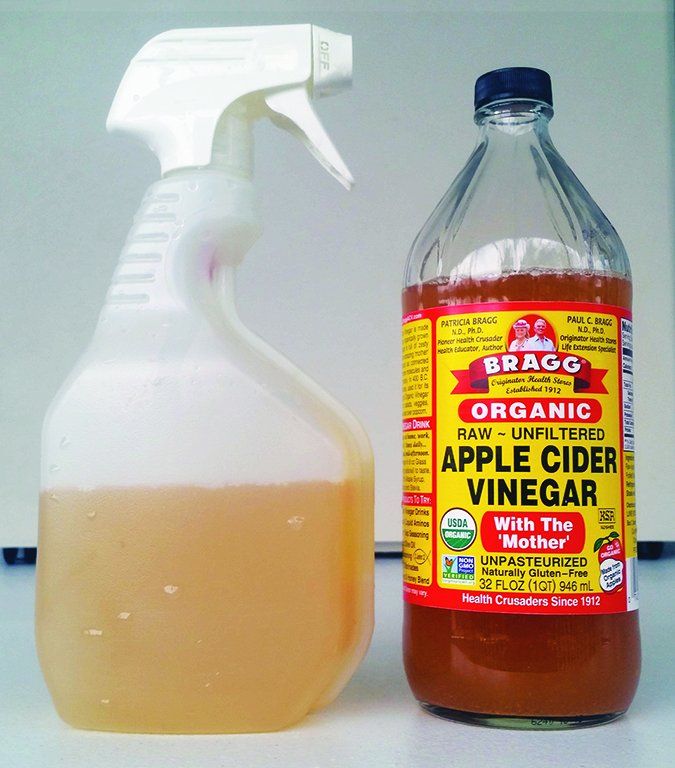As a dog owner, it’s natural to want to provide the best possible care for your furry friend. With so many health products available, it can be difficult to determine what’s safe and beneficial for your pup. One trend that’s gained popularity is adding apple cider vinegar to a dog’s food, but is it safe?
While apple cider vinegar has been touted for its health benefits in humans, the same can’t be said for our canine companions. In fact, there are potential risks involved in adding apple cider vinegar to a dog’s diet. Before you start adding this ingredient to your dog’s food, it’s important to understand the possible effects it could have on their health.

Can I Put Apple Cider Vinegar in My Dog’s Food?
Apple cider vinegar is a popular natural remedy that has been used for centuries for various health benefits. It is known to help with digestion, reduce inflammation, and even improve skin and coat health in dogs. However, before adding apple cider vinegar to your dog’s diet, it is important to understand the potential benefits and risks associated with its use.
What is Apple Cider Vinegar?
Apple cider vinegar is a type of vinegar made from fermented apples. It contains acetic acid, which gives it its characteristic sour taste and strong odor. It is also rich in enzymes, amino acids, and beneficial bacteria that can help support overall health.
When choosing apple cider vinegar for your dog, it is important to select an organic, raw, unfiltered, and unpasteurized variety. This type of vinegar retains all of its natural enzymes, nutrients, and beneficial bacteria, making it the most effective for improving your dog’s health.
Benefits of Apple Cider Vinegar for Dogs
There are several potential benefits of adding apple cider vinegar to your dog’s food, including:
1. Improved Digestion: Apple cider vinegar can help improve your dog’s digestion by promoting the growth of beneficial bacteria in the gut. This can help reduce the risk of digestive issues such as diarrhea, constipation, and gas.
2. Reduced Inflammation: Apple cider vinegar contains anti-inflammatory properties that can help reduce inflammation throughout the body. This can be particularly beneficial for dogs with arthritis, allergies, or other inflammatory conditions.
3. Improved Skin and Coat Health: Apple cider vinegar can help improve your dog’s skin and coat health by balancing the natural pH of the skin and reducing the risk of bacterial and fungal infections.
4. Immune System Support: Apple cider vinegar contains beneficial bacteria and enzymes that can help support your dog’s immune system, helping to keep them healthy and strong.
Risks of Apple Cider Vinegar for Dogs
While apple cider vinegar can be beneficial for dogs, there are also some potential risks associated with its use. These include:
1. Tooth Erosion: Apple cider vinegar is acidic and can potentially erode your dog’s tooth enamel if given in large amounts or over a long period of time. It is important to dilute the vinegar and give it in moderation to reduce the risk of tooth damage.
2. Digestive Upset: Some dogs may experience digestive upset, such as vomiting or diarrhea, when first introduced to apple cider vinegar. It is important to start with a small amount and gradually increase the dosage over time to allow your dog’s digestive system to adjust.
3. Interference with Medications: Apple cider vinegar can potentially interfere with certain medications, including insulin and diuretics. It is important to consult with your veterinarian before adding apple cider vinegar to your dog’s diet if they are currently taking any medications.
How to Add Apple Cider Vinegar to Your Dog’s Diet
If you decide to add apple cider vinegar to your dog’s diet, it is important to do so in moderation and with care. Here are some tips for safely adding apple cider vinegar to your dog’s food:
1. Start with a small amount: Begin by adding just a few drops of apple cider vinegar to your dog’s food and gradually increase the amount over time.
2. Dilute the vinegar: Mix the vinegar with water or broth to dilute the acidity and make it easier for your dog to digest.
3. Use the right dosage: The recommended dosage of apple cider vinegar for dogs is 1 teaspoon per 50 pounds of body weight, given once or twice a day.
4. Monitor your dog’s reaction: Watch for any signs of digestive upset or other adverse reactions, and adjust the dosage accordingly.
Conclusion
Overall, apple cider vinegar can be a beneficial addition to your dog’s diet when used in moderation and with care. It can help improve digestion, reduce inflammation, and support overall health. However, it is important to understand the potential risks and to consult with your veterinarian before adding apple cider vinegar to your dog’s diet, especially if they have any underlying health conditions or are taking medications.
Frequently Asked Questions
As a dog owner, you might be wondering if you can add apple cider vinegar to your dog’s food. Here are some frequently asked questions and their answers to help you make an informed decision.
Can I put apple cider vinegar in my dog’s food?
Yes, you can add apple cider vinegar to your dog’s food, but in moderation. It is important to consult with your veterinarian before adding any new supplement or ingredient to your dog’s diet. While some dogs may benefit from apple cider vinegar, others may have adverse reactions. It is important to start with a small amount and monitor your dog’s response.
Apple cider vinegar can help improve digestion, promote a healthy immune system, and even repel fleas and ticks. However, it is important to dilute the vinegar with water before adding it to your dog’s food. A recommended dosage is 1 teaspoon of apple cider vinegar per 50 pounds of body weight, mixed with a cup of water.
What are the benefits of adding apple cider vinegar to my dog’s food?
Adding apple cider vinegar to your dog’s food can have several benefits. It can help improve digestion and prevent urinary tract infections. It can also help repel fleas and ticks, and even soothe itchy skin. Apple cider vinegar is rich in vitamins and minerals that can help boost your dog’s immune system and overall health.
However, it is important to remember that apple cider vinegar should be added in moderation and diluted with water. If your dog has any underlying health conditions, it is important to consult with your veterinarian before adding apple cider vinegar to their diet.
Can apple cider vinegar be harmful to my dog?
While apple cider vinegar can have several benefits for dogs, it can also be harmful if not used properly. Undiluted apple cider vinegar can cause irritation and even chemical burns on your dog’s skin, mouth, and digestive tract. It can also lower your dog’s potassium levels and cause bone loss over time.
It is important to dilute apple cider vinegar with water and start with a small amount. If your dog shows any signs of discomfort, stop using it immediately and consult with your veterinarian. Dogs with kidney or liver disease should not be given apple cider vinegar.
How often should I add apple cider vinegar to my dog’s food?
The frequency of adding apple cider vinegar to your dog’s food depends on the reason for using it. If you are using it to improve digestion or boost your dog’s immune system, you can add it once a day or a few times a week. If you are using it to repel fleas and ticks, you can add it to your dog’s food once a day or use it as a spray on your dog’s coat.
It is important to remember to dilute the apple cider vinegar with water and monitor your dog’s response. If your dog shows any signs of discomfort, stop using it immediately and consult with your veterinarian.
Are there any alternatives to apple cider vinegar for my dog?
Yes, there are several alternatives to apple cider vinegar for dogs. You can add plain, unsweetened yogurt to your dog’s food to improve digestion and boost their immune system. You can also add pumpkin puree to your dog’s food to promote healthy digestion and prevent constipation.
Coconut oil can also be added to your dog’s food to improve their coat and skin health. It is important to consult with your veterinarian before adding any new supplement or ingredient to your dog’s diet.

In conclusion, apple cider vinegar can be a healthy addition to your dog’s diet when used in moderation. It has been shown to have several benefits, including promoting digestion, fighting off harmful bacteria, and even aiding in weight loss. However, it is important to consult with your veterinarian before adding any new supplements to your dog’s food.
Additionally, it is important to dilute the apple cider vinegar and gradually introduce it to your dog’s diet. Too much apple cider vinegar can cause digestive upset or even lead to potassium depletion.
Overall, apple cider vinegar can be a great natural supplement to improve your dog’s health when used appropriately. With the guidance of your veterinarian, you can safely incorporate this ingredient into your dog’s diet and provide them with added health benefits.
